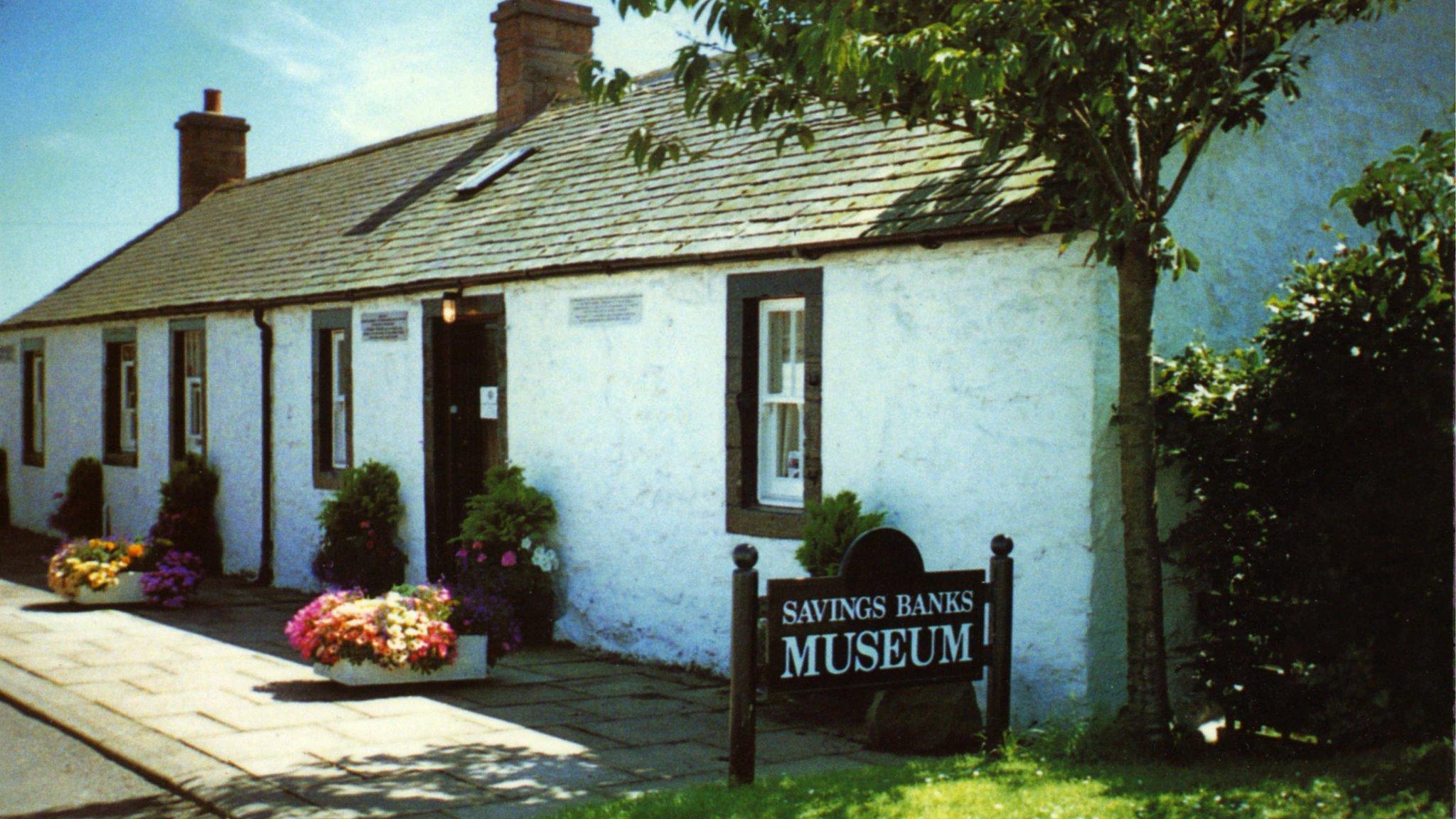TSB urged to drop Ruthwell savings bank museum closure plan
- Published
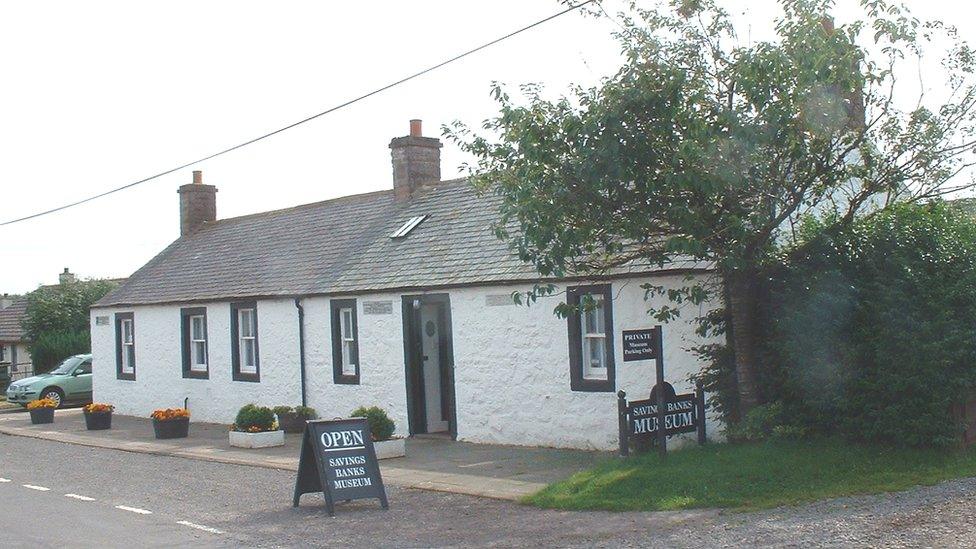
A campaign hopes to make the TSB rethink plans to close the site for good
Campaigners have called on the TSB to drop its plans to permanently close a museum at the site of the world's first savings bank in the south of Scotland.
The banking firm recently revealed it intended to shut the Ruthwell cottage and move its contents to Edinburgh.
Tour operator Mark Turner, who set up a petition opposing the move, said it was an important facility for the village.
The TSB said it had been in talks over ensuring items which were of local relevance would stay in the region.
The small cottage museum is on the site where Rev Henry Duncan set up his "penny bank" for parishioners in 1810.
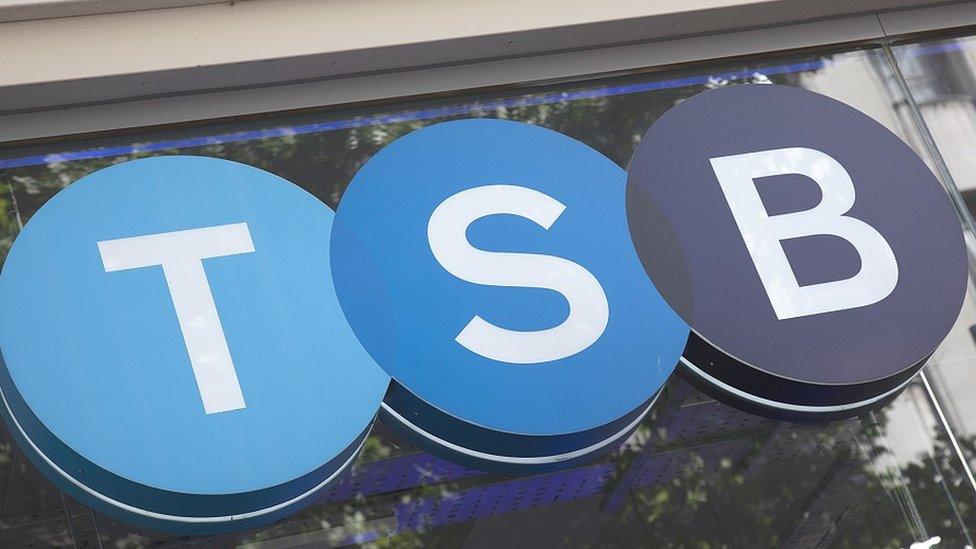
The company plans to move some of the museum's contents to Edinburgh
It has been shut during the Covid pandemic but the TSB now plans to close it permanently and move some of the contents to its Edinburgh headquarters.
Mr Turner, who runs Solway Tours, said he had been "pretty devastated" when he heard the plans and set up a petition which has been supported by more than 1,000 people.
"For a small museum in rural Dumfriesshire I think it is a fantastic response," he said.
"It probably says a lot about how important and how valued that wee museum is.
"The curator that runs that museum is fantastic."
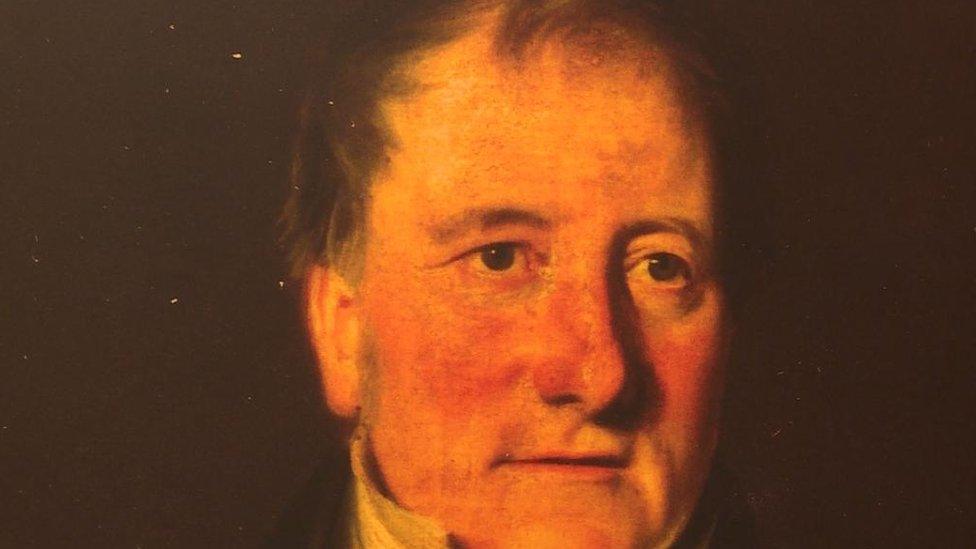
Mr Turner said it was important to tell Henry Duncan's story where it happened
He said moving it from the cottage to Edinburgh seemed "daft".
"I think the artefacts are great and people seeing them is brilliant - but I don't think that's the story," he said.
"The story is actually seeing it in situ and hearing the story of Henry Duncan."
The campaign has gathered cross-party political support with the SNP's Emma Harper, Labour's Colin Smyth and Conservative David Mundell all calling on the TSB to change its mind.
"I think they understand the feelings in the local community are running high," said Mr Turner.
"Obviously when it is a big bank like TSB they might make decisions on a more financial rather than a cultural basis."
Ongoing talks
However, he said he hoped they might rethink their plans given the level of opposition.
The TSB has said the Henry Duncan story is a "proud part" of its history and the move would allow more people to learn about his work.
It has also highlighted the small number of people visiting the Ruthwell site each year.
It has already held talks with local politicians and campaigners and said it would continue the dialogue to ensure any artefacts which should remain in the area would do so.
- Published19 May 2021
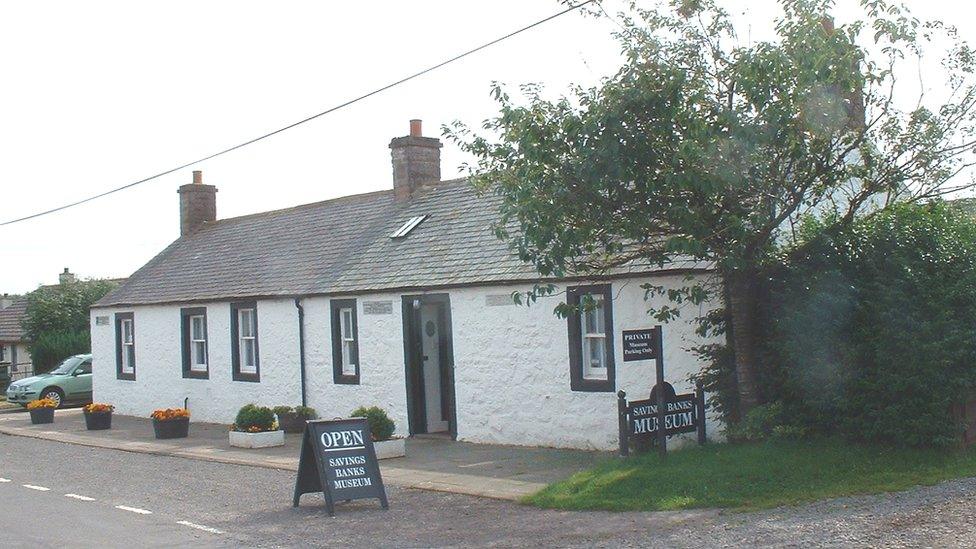
- Published30 November 2017
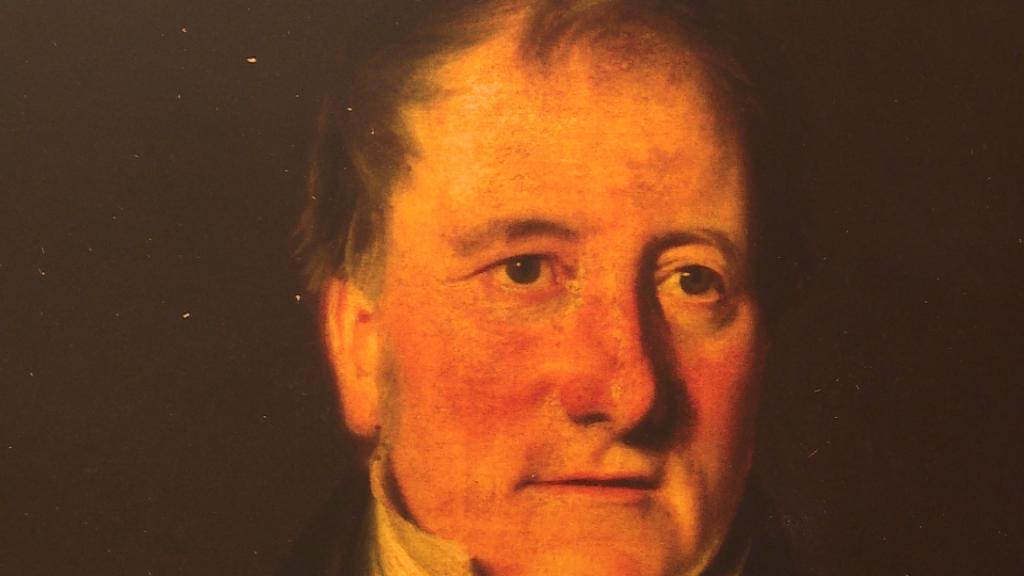
- Published26 May 2016

- Published9 September 2013
